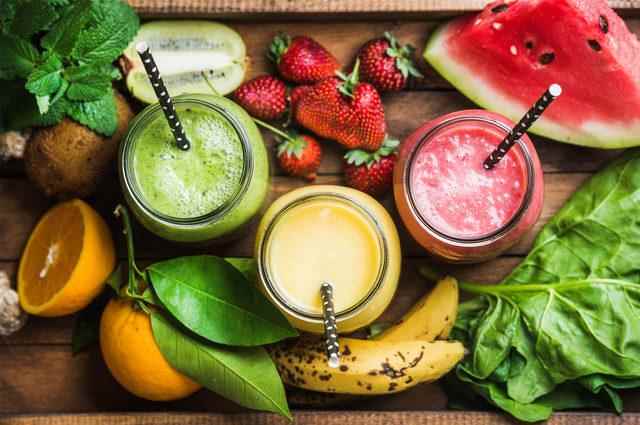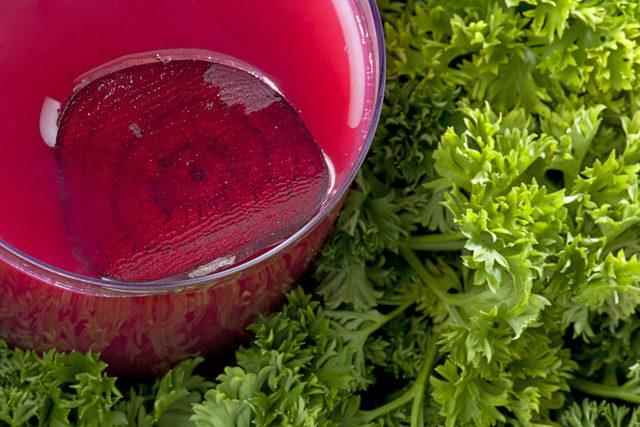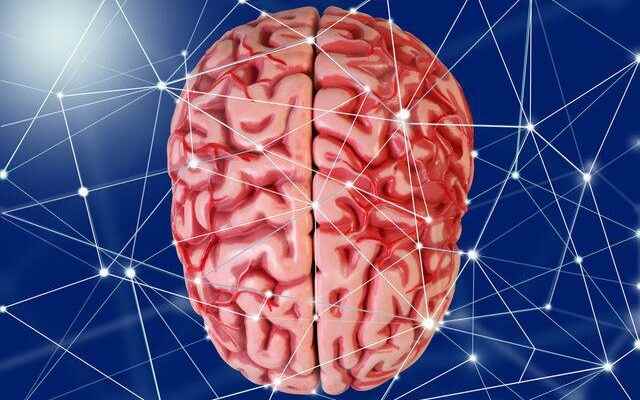What we eat has an effect on many things, from regeneration of brain cells to memory. So yes, food is very important for the brain; especially for the gray area of our brain. So what foods are good for the brain? Walnuts and water are the most well-known of these, but in their most basic form, foods rich in antioxidants, good fats, vitamins and minerals provide energy and aid in protecting against brain diseases.
Regeneration of Brain Cells
Before we talk about foods that are beneficial to the brain, there is something we should mention; “Why should we consume foods that are beneficial to the brain?” Because the brain is the organ that runs the body. In order to fulfill this task, we need brain cells, namely neurons. The production of neurons is called “neurogenesis”. The most effective ages of neurogenesis are childhood. Because with age, neurogenesis gradually decreases. As the production of brain cells decreases, the brain begins to shrink. There are many methods to prevent this. In addition to drugs and brain exercises, adding herbs that are good for brain shrinkage to the daily diet, consuming foods that increase the regeneration of brain cells and repair brain cells are among the methods that will increase neurogenesis.
Beverages That Renew Brain Cells

1. Pomegranate Juice
Pomegranate juice has strong antioxidant properties. According to one study, the antioxidant potential of this fruit is three times stronger than red wine and green tea. Pomegranate juice is also high in phytochemicals, polyphenols, tannins and anthocyanins. It has been scientifically proven that a glass of pomegranate juice reduces the risk of developing cardiovascular diseases and improves memory.
Take enough pomegranate to fill a bowl, wash it and put it in the food processor. Add half a glass of water to it and pull on the lowest setting so that only the seeds remain (be careful not to break the seeds, otherwise the pomegranate juice will be bitter). Then clean the beans with a cheesecloth or strainer. Your pomegranate juice is ready to drink. Instead of throwing away the seeds you have separated, you can mix them with apple and honey and eat them. You can also add it to your salads.
2. Tea
Whether you choose black or green tea is up to you. Tea increases the production of brain cells, increases your brain activity and prevents premature brain aging. It is a rich source of antioxidants that prevent DNA damage. It is also of great importance in preventing brain tumors.
Bring water, lemon peel strips and ginger to a boil in a large pot and then reduce the heat. Cook for 10 minutes. With the help of a strainer, remove the lemon peels and ginger. Put the tea bags in a teapot and immediately add the boiled lemon juice. Close the lid and let it sit for 1 to 3 minutes. Take out the tea bags, squeeze gently. Serve immediately in a heatproof glass mug or glass. If you want, you can sweeten it with honey instead of sugar and add lemon slices to serve.
3. Cocoa
Cocoa contains flavonols that regulate your blood pressure. It reduces the risk of stroke when smoked regularly. It also improves your mood, concentration and memory. Cocoa supports the secretion of happiness hormone, so it also prevents stress, the main enemy of the brain.
Add a spoonful of honey and a pinch of black pepper to 2 spoons of unprocessed cocoa. Add 2 glasses of water or milk according to your desire and boil it for 6-7 minutes. You can drink it after it cools down a bit.
4. Coffee
Sure, it’s obvious that coffee will lift you up and help you focus, but did you know that consuming two to three cups of coffee a day is linked to both long-term and short-term improvements in memory? By adding a few cinnamon, you can further strengthen its brain-boosting effects.
After mixing 1 shot of espresso, a banana, a glass of milk, half a spoon of cocoa and a spoon of honey into a milkshake, you can consume it by adding a few strawberries.
Brain and Memory
The brain is a three-pound organ that controls all the functions of the body, interprets its information in the outside world, and embodies the essence of the mind and spirit. Intelligence, creativity, emotion and memory are just a few of the many things that are managed by the brain.
Memory is the ability of the human brain to encode, store, retain and recall information and past experiences. In general, it can be thought of as the use of past experiences to influence or influence current behavior. Memory is the sum of everything we remember and gives us the ability to learn, adapt and relate from previous experiences. It is the ability to remember past experiences and previously learned facts, impressions, skills and habits. In short, we can say that our memory is our sine qua non.
So, does the brain and memory get stronger just by increasing neurogenesis? Our answer is of course no; because it is also important to protect brain cells and increase their efficiency. Again, apart from medicine and various exercises, there are foods and herbs that are good for the brain and memory.
Foods That Are Good For The Brain And Memory

1. Beets
Beets contain nutritional values such as folate, magnesium, iron and vitamin C. It is very healthy thanks to its high nitric oxide content. Nitrate gases turn into nitrites, which increases blood flow to the brain. In the experiment conducted to confirm this feature of beetroot, the subjects were scanned before and after drinking beet juice. The scans revealed that after drinking beet juice, blood circulation reaches the white matter in the frontal lobes.
Boil 2 beets and 2 potatoes, cut into cubes. Mix it with spring onions, dried mint, a pinch of salt and pepper, chopped cucumber and raisins to make a salad. You can also drink freshly squeezed orange juice if you wish.
2. Carrot
Carrots contain a variety of nutrients that support mental health and cognitive function. It is rich in potassium, which promotes the normal functioning of the brain and thus prevents stroke. It’s also a good source of beta-carotene, a substance that’s very important in boosting brain power.
Many studies show that oxidative stress is linked to decreased cognitive functions and deterioration of the brain. Beta-carotene has been observed to reduce oxidative stress and therefore improve brain function.
3. Mulberry
Mulberry contains flavonoids and chemical anthocyanins that repair damage due to inflammatory mediators. It also prevents memory loss due to aging. It improves the functioning and production of neurons. It also reduces oxidative stress, protects veins and arteries from clogging, and is an excellent weapon against dementia.
Boil 3 spoons of water, add 1 bag of green tea and let it brew for 3 minutes. After removing the bag, dissolve 2 teaspoons of honey in the tea. Grind 1.5 cups of mulberry, half a banana and half a glass of soy milk in the mixer and add the tea. Grind until smooth, add water if necessary.
4. Avocado
Avocado is one of the healthiest fruits you can consume. While often notorious for its high fat content, keep in mind that these green energy bombs are packed with saturated fats (or the “good” kind), keeping blood sugar levels stable and skin glowing.
Containing both vitamin K and folate, avocado helps prevent blood clots in the brain (protects against stroke) and also helps improve cognitive functions, especially both memory and concentration. It is also rich in B vitamins and vitamin C, which are not stored in the body and need to be replenished daily. It has the highest protein and lowest sugar content of all fruits.
Cut an avocado in half, remove the skin and slice it. Add some lemon juice to it and mash. After crushing, mix a little salt and pepper. If you want, you can eat it by spreading it on the bread, or you can consume it by mixing it into a salad.
5. Broccoli
Thanks to its high levels of vitamin K and choline, it helps to keep the memory sharp. It is also loaded with vitamin C. Just one cup of broccoli provides 150 percent of the recommended daily intake of vitamin C. The high fiber level also means you’ll feel full quickly. Cut a broccoli into small pieces and boil it. Season with lemon and salt. Then add garlic yoghurt and chili flakes on it. The recipe, which is served similar to ravioli, will change your perspective on broccoli and make it easier for children to consume.
6. Red Meat
Red meat is an excellent source of vitamin B12, which is vital for healthy brain function. People with high rates of vitamin B12 deficiency are more likely to have less overall brain volume, as well as score lower on cognitive tests. This suggests that vitamin deficiency may cause brain shrinkage.
After preparing a portion of lean ground beef in the form of grilled meatballs, you can add boiled vegetables to it. You can slice an avocado, add some cheese and onions to it, then mash it and spread it on grilled tenderloin pieces.
7. Parsley and Thyme
In a new study, it has been seen that the flavonoid in these spices, called apigenin, strengthens the connection between stem cells and neurons – even our “raw material” cells that can form other specialized forms. These results were achieved in vitro, but the researchers say that an apigenin-rich diet may also affect brain cell formation and communication, suggesting that diseases like Alzheimer’s and Parkinson’s can, in theory, be treated.
8. Sage
Sage is one of the most important medicinal plants that are good for the brain. In two studies, it was revealed that subjects performed better on memory tests for hours after taking sage extract pills. In addition, it was seen that sage strengthens all the enzymes important for the brain. However, care should be taken when consuming sage; Excessive consumption can cause many problems, especially for those with high blood pressure.
9. Vacha
This herb has traditionally been used to help treat nervous system disorders. It helps with clear thinking, focus and mental concentration. People who use vacha say it has a mildly stimulating effect and is therefore often recommended for people with low moods. Vacha is also thought to aid in the detoxification of brain tissue.
10. Ginseng
Ginseng is famous for its use in increasing vitality and improving all mental functions. It is also a recognized adaptogen. That is, it helps your body and brain better cope with the effects of stress. Moreover, it also protects brain cells against toxins and beta-amyloids that cause age-related mental decline.
You can get these herbs in herbalists or big markets. However, no matter what; always avoid excessive consumption and drink plenty of water. The brain’s best friend is water!
